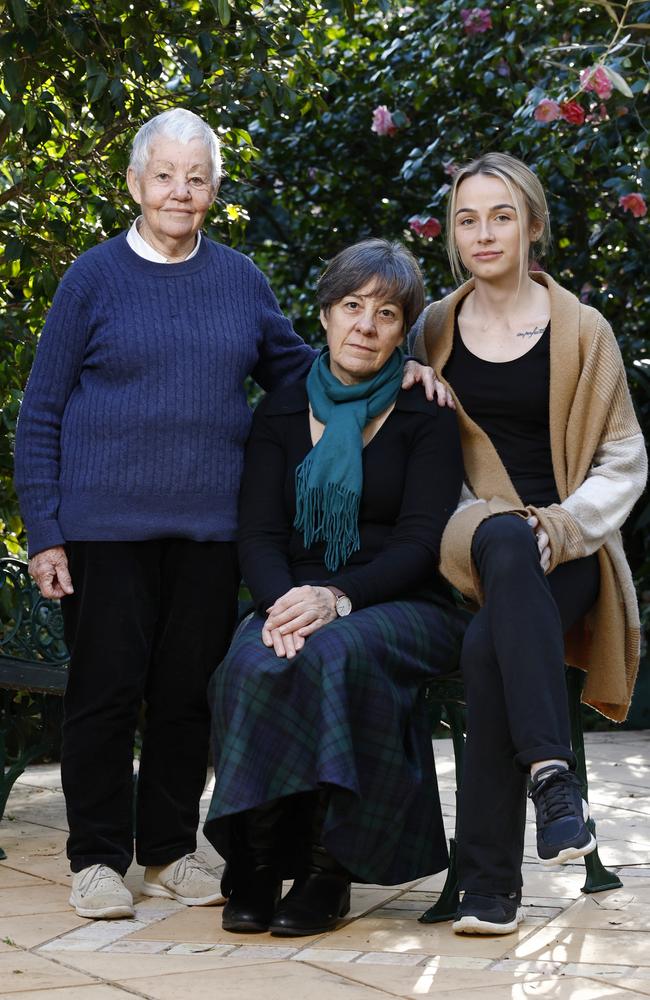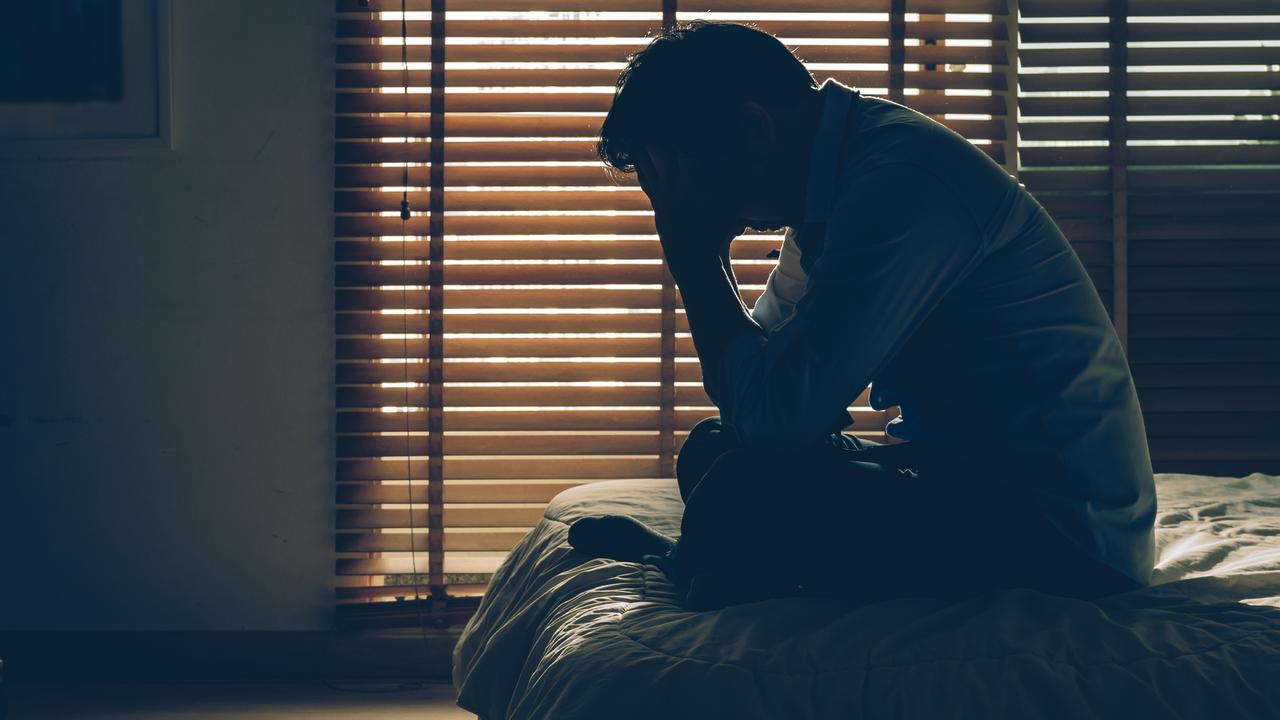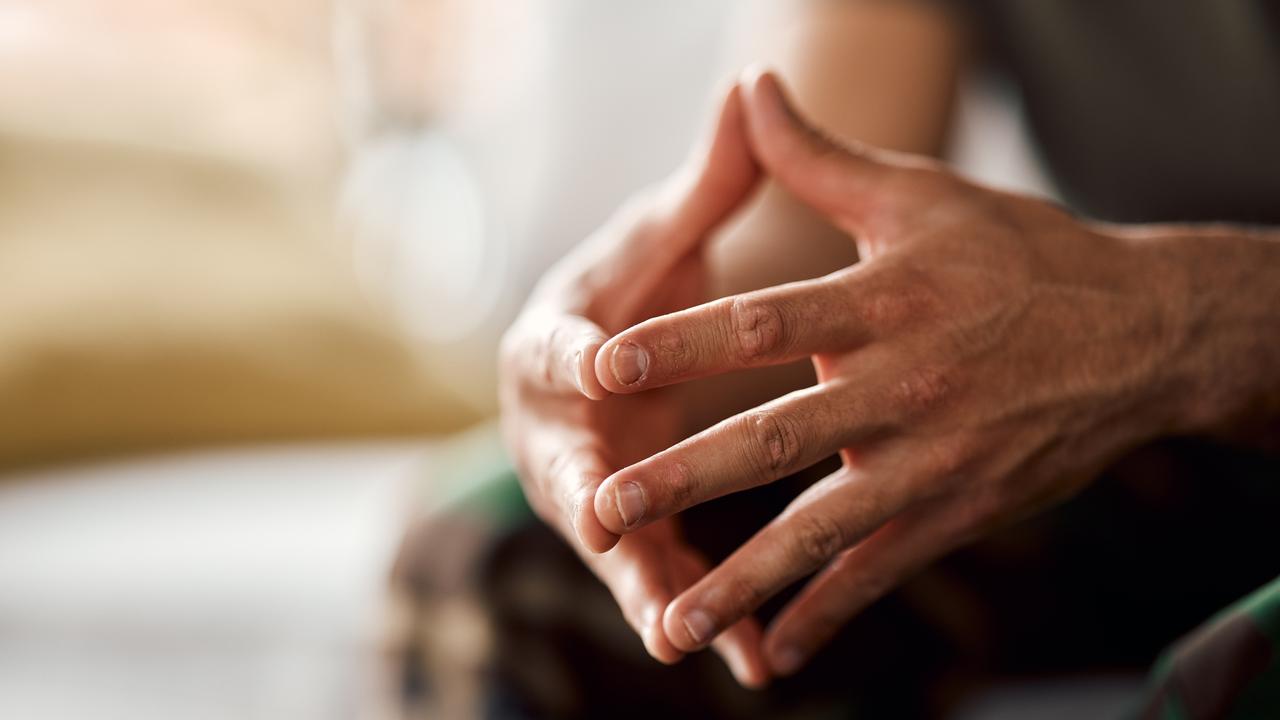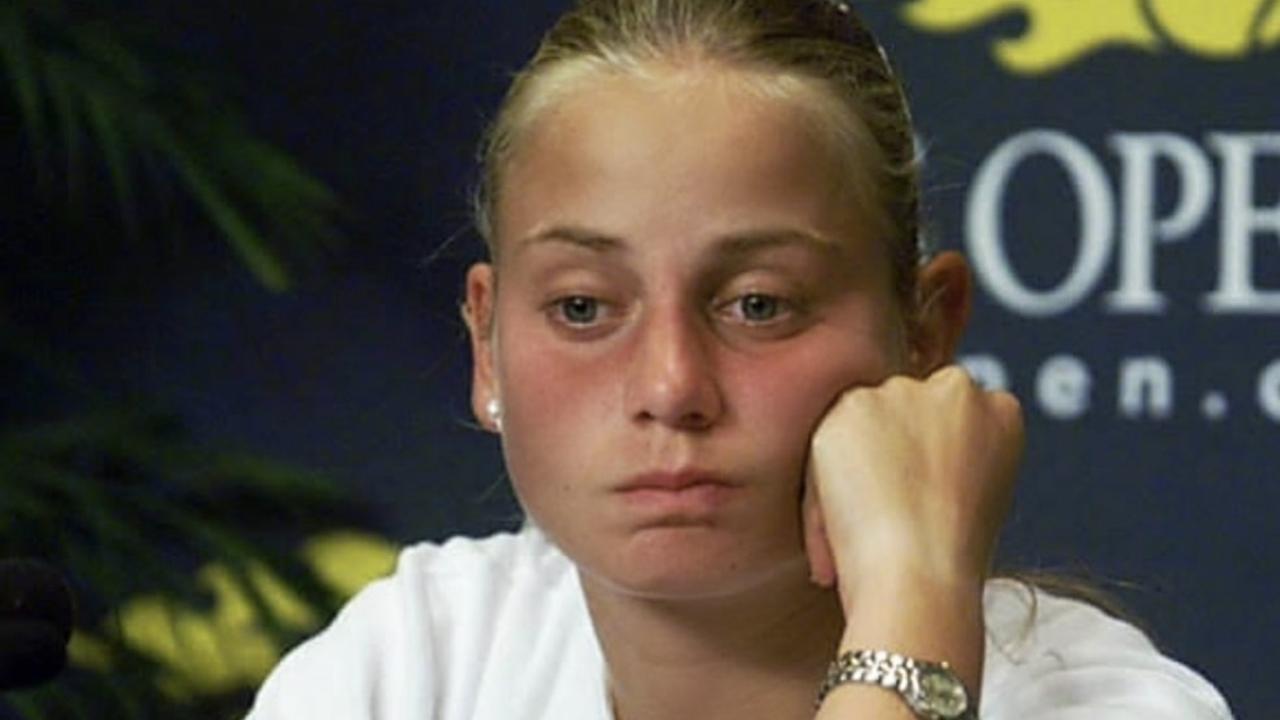NSW family reflect on father’s suicide 24 years on
Two sad words written in an Australian father’s suicide note have exposed a frightening national crisis.

When Nicola Cowlard thinks about her father, the image conjured up in her mind is crafted purely from how others have described him.
Kind. Funny. Sweet. Caring.
Looking back at family photographs, the 24-year-old wishes she could have had the chance to know him.
She was just two when her dad Jonathen Cowlard took his own life back in 2002.
The new father was just 38 years old and had been suffering from the debilitating effects of depression and addiction since he was teenager.

Now his daughter is speaking out to raise awareness of men’s mental health and shining light on what it was like to navigate life after losing him so young.
“It was hard growing up without a dad,” Nicola, from Pymble, New South Wales, told news.com.au.
“It impacts every facet of your life. I remember in school there was a daddy-daughter dance, and obviously I couldn’t have that experience.
“I realised I would never have my dad to walk me down the aisle. My future kids would never be able to meet their grandfather.
“I am going to have to explain that to them. When I make new friends, a normal topic of conversation is family.
“So it always comes back in one way or another.”
Nicola recalls being told when she was a child that her father took his own life, however she did not understand the extent of what occurred until she was older.


The tragedy of what happened steered her towards a career in mental health where she now helps others who may be grappling with psychological issues.
She reflected how two words in her father’s suicide letter sparked her desire to raise awareness of men’s mental health in particularly.
“I don’t have any direct memories of him because I was so young when it happened,” she said.
“But from what everyone had told me, he was really kind and would do anything to help anyone. He was really loved.
“I forgive him for what he’s done. To get to that point where you want to end your life, I can’t imagine the amount of pain he must have been in.
“In a note he left before taking his life, he said ‘I’m weak’. That broke my heart.
“It shows how men feel they can’t speak out and I think that is still the case.
“With what I’m doing with my work, I feel I’m making him proud. It’s a way of honouring him.”


She said that the one thing she wanted people, especially men, to know if that is “not weak to speak”.
“There is a stigma that men who talk about their feelings are weak,” she said.
“The message is to harden up, eat some concrete. But that is just so dangerous.
“We need an overhaul of how we treat mental health. Kids are falling through the cracks.
“Teachers are not educated enough on picking up on the signs that someone might be thinking of ending their life. We need early intervention.
“The wait times just to see a psychologist nowadays can be six to 12 months. That could be the difference between life or death for some people.”
Harmful gender stereotypes
Jonathen’s death came after a long and difficult battle with his mental health.
His mother Ryrie Bridges, 80, and his sister Jacqui Richardson, 62, recall how he had tried reaching out for help repeatedly during his struggles.

Sadly, they say harmful gender stereotypes and lack of support for men’s mental health at the time played a pivotal role in preventing Jonathan in getting the help that may have saved his life.
“Mental health was never discussed, least of all men’s mental health,” his mum Ryrie told news.com.au.
“In fact I was quite shocked when I discovered that depression was a mental health issue.
“Men particularly were told to pull themselves together, count their blessings and get on with life.
“Depression was seen as a weakness. Jonathen turned to illegal drugs to ease his pain.
“Even though there were signs he needed help, it was unavailable. GP’s overall were not able to pick up the signs of depression from an inarticulate young man, and never diagnosed it.”
Ryrie recalled her grief at hearing the news that her son had died and added even 24 years later, the sadness is the same as the day it happened.
“I was in disbelief when he died. I thought it couldn’t possibly be true,” she said.
“There was a relief that his suffering was over and then I felt guilty at that relief.
“I was horrified when I had to identify the body of my son. That my son was now a ‘body’ was almost too much to bear.
“While the intense grief diminishes over time, the sadness at the death of my son by suicide will never leave me.
“If only we could have convinced him that depression was not a weakness, nor was seeking solace in drugs and alcohol.”

His sister Jacqui said she wanted to see greater education about mental health from a young age.
“Early intervention is the key,” she told news.com.au.
“Mental health education in schools would provide children with the tools to begin talking about these feelings.
“Start in primary school and continue through high school when mental health is emerging.
“Men’s health needs to be provided by people who understand men’s issues, the culture of being a man and upholding the dignity of being male and being vulnerable.
“Men need a choice about who they are most comfortable talking to and should be able to access intervention from men’s health organisations.”
She added that the pain of losing someone to suicide lives on long after the person is gone.
“Don’t give up hope. Talk to someone,” she said.
“The pain is over for you when you suicide but it lives on forever in the hearts of the people you love and who love you.
“It lives in the DNA of those who follow. The pain spans generations.”

Worrying statistics
Despite 24 years passing since his suicide, it appears not much has changed.
In a world-first report by the Movember Institute of Men’s Health, it has been revealed that the leading cause of death for men aged 15 to 44 in Australia is suicide, with men being three times more likely to end their own lives than women.
The Real Face of Men’s Health report found that half of Australian men believe it is normal to ignore regular check-ups and almost a third are confused or overwhelmed by current health information.
Almost two in three have been faced with harmful gender stereotypes in their interactions with the health system, such as the expectation that men should “tough it out”.
“Help-seeking is unfamiliar and daunting for many men in Australia, which is why so many men put it off,” Movember Institute of Men’s Health director Professor Simon Rice explained.

“When men do seek assistance, they often feel dismissed and dissatisfied.
“The result? Undiagnosed and untreated conditions, poorer health outcomes, and too many men dying early – from largely preventable reasons.
“Our healthcare system, which is meant to support boys and men, is falling short, and that is placing significant strain on the families and communities who care for men in poor health.
“It’s crucial that primary healthcare is tailored to address the unique needs of all genders and that healthcare professionals receive training in gender-responsive healthcare, ensuring equitable health outcomes for all.”
Movember is calling on Australians to get behind men’s health by signing this petition for the government to rally for change.






